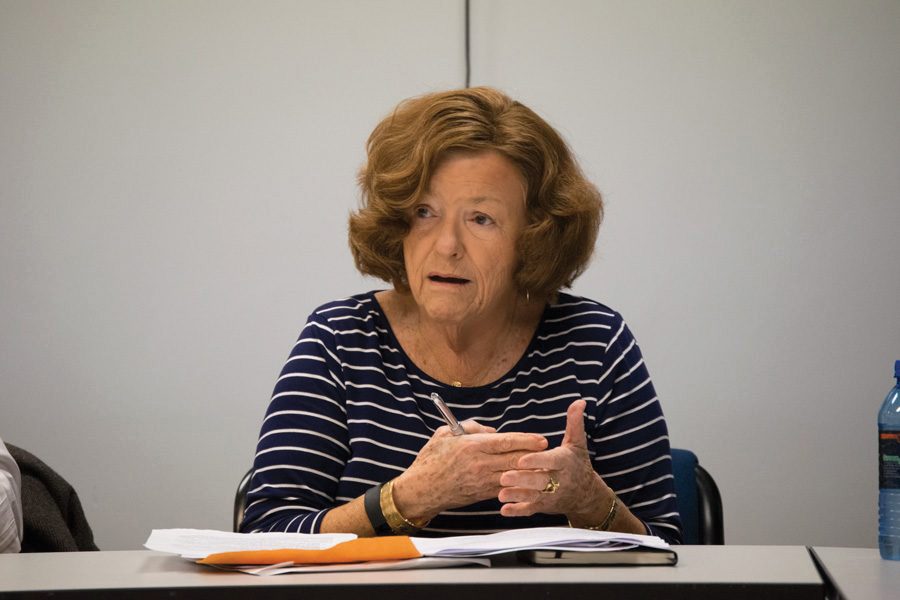TIF district in south Evanston likely to be dissolved as planned
Daily file photo by Lauren Duquette
Ald. Ann Rainey (8th) speaks at a city meeting. A tax increment finance district, or TIF, in Rainey’s ward will likely be dissolved by the end of the year.
October 10, 2016
Evanston may soon have some extra money to spend, as City Council voted Monday to introduce an ordinance that would dissolve a tax increment finance district in south Evanston.
Also known as a TIF, the district had been scheduled to expire on Dec. 31. TIFs are generally implemented in areas the local government deems to be unattractive to private investment. Property taxes from the area can then be used to invigorate the district by reallocating property taxes for public works or economic development initiatives.
The TIF in question was adopted in an April 1992 ordinance.
Some remaining funds from this TIF may be used to complete renovations of street lights and curbs on Howard Street, while the rest may be saved for future improvements, according to city documents.
“We have a whole list of things that we might (spend the money on),” Ald. Ann Rainey (8th) told The Daily, adding she hadn’t thought of anything specific just yet. “I’m a saver, so I just want to save this.”
The district contains the Evanston Center shopping mall and Autobarn Tech Center and is bordered by Howard and Hartrey streets. Council will vote to approve the measure in two weeks.
When aldermen debated sewer repair contracts — which are being paid partially using the TIF funds — during the Administration and Public Works Committee meeting, city manager Wally Bobkiewicz said he will take council direction on what to do with any leftover funds.
“What we’ve done in the past is we’ve tried to spend the TIFs down as far as we can because that’s the purpose of the money,” Bobkiewicz said. “If it’s the committee’s desire to remove the money this evening, we will find substitute funding for it.”
In the same committee meeting, disagreement arose among aldermen over what some of the TIF money would fund. While the committee was discussing the sewer repairs, Rainey said she would rather pay for part of the contract using the city’s sewer tax instead of from the TIF fund.
“It was my feeling that the money for that sewer lining should come from the sewer tax,” Rainey said. “We have all these other expenses, so let’s keep that (TIF) money aside until we close the TIF because we might have to spend it on something else.”
However, Ald. Brian Miller (9th) voiced concern that because there currently aren’t any concrete plans to spend the amount in question — $27,883 — and there likely isn’t enough time to make such plans, it’s futile to try to find a different source for the money. Holding the money without committing to a project “doesn’t make sense,” Miller told The Daily.
Miller ended up voting to approve the sewer repairs though, as he wanted the project itself to go through.
“It was $27,000, so it’s not the end of the world … I’m sure we’ll find a way to spend that money,” Miller told The Daily. “It was one of those things where I could have brought it up, but I didn’t want to stop the project.”
Email: [email protected]
Twitter: @MaxGelman


